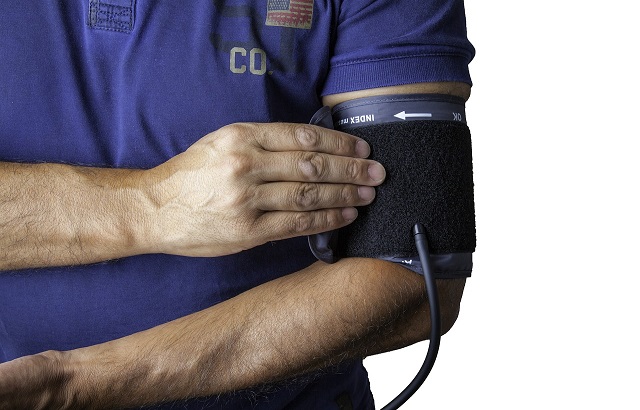The study, which is published today in the Journal of Clinical Hypertension and is supported by Barts Charity, devised a novel treatment strategy for 55 patients, involving fractional dosing with tablets (halving or quartering pills), liquid formulations of antihypertensive drugs and patch formulations of antihypertensive drugs – plus use of unlicensed drugs that lower blood pressure.
Blood pressure was significantly reduced among patients after just six months on the novel treatment strategy, and the results were sustained. Significantly, the patients experienced no debilitating side effects.
Dr Melvin Lobo, who led the study at Queen Mary University of London and is also Director of the Barts Health Blood Pressure Clinic, comments: “This is an entirely new concept in tackling high blood pressure. There has in the past been an emphasis – and even a blame culture – on proving that uncontrolled blood pressure is down to patients either forgetting or not wanting to take their tablets. Many of our patients have reported negative experiences with their doctors after complaining about drug side effects. Often the feeling is that reducing the health risks of patients with high blood pressure, such as stroke or heart attack, justifies the very serious drug intolerance that they can experience.
“We, however, took a different view. We understand that some patients feel forced to cease their treatment due to how wretched it makes them feel. And so we set about trying to help them get around side effects, as opposed to forcing them to take drugs they felt were poisoning them.
“Some patients have even contemplated suicide rather than continue with medications that cause severe adverse effects – that is how serious this issue is.”
There are approximately 15 million individuals in the UK with high blood pressure. Around half of patients with hypertension stop taking their medication within 12 months of being prescribed antihypertensive drugs, and severe intolerance is found in 10 per cent of patients referred to the Barts Health Blood Pressure Clinic.
Such patients are at very high risk of stroke, heart attack and kidney failure due to uncontrolled high blood pressure and the need to find alternative ways of getting these patients’ blood pressure under control is urgent.
Dr Lobo continues: “By using the medications we already have available and taking a personalised approach to prescribing these drugs – avoiding an ‘off the shelf’ regime – it allowed patients to tolerate increased numbers of medications and ultimately resulted in significant and long lasting lowering of blood pressure. The difference this has made to our patients’ lives cannot be overstated.”
“Blood pressure control is vital as a means of avoiding serious cardiovascular events such as heart attack and stroke. However, anti-hypertensive medication side effects are common and can be very debilitating, causing severe impact on quality of life. Patients should not have to suffer such side effects when there are alternative ways of treating them.
“We also urge clinicians to be more sympathetic towards their patients who report drug side effects – after all, high blood pressure is an asymptomatic condition and it is the drugs that can make patients symptomatic with adverse effects. For this our patients should not be culpable.
“We recommend people with intolerance to three or more high blood pressure drugs, who are struggling to control their blood pressure, be referred to our centre at Barts Health NHS Trust. We plan to extend our studies into primary care in order to widen our reach and broaden the impact of our findings.”



